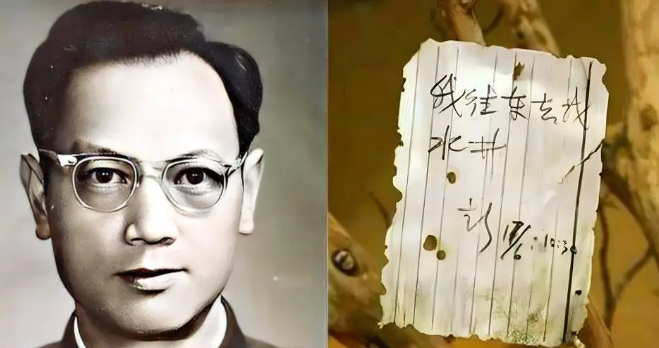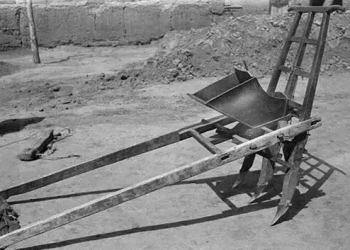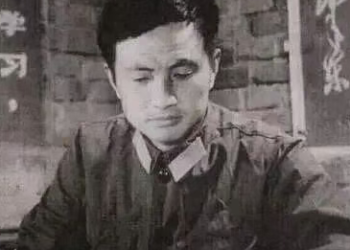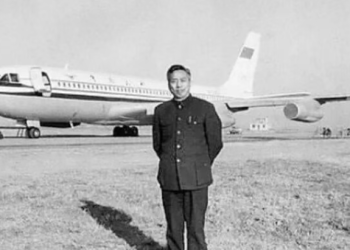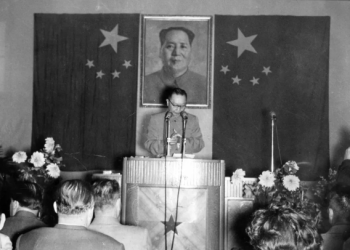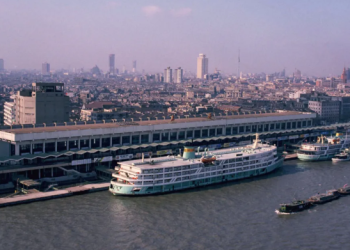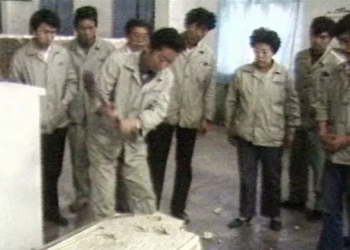On June 23, 1980, Hua Guofeng, then Chairman of the Central Committee, issued an important directive to the armed forces: the troops must spare no effort in locating the missing scientist Peng Jiamu. Hua also ordered the air force and ground units to take part in the search operations.
With this statement from the top leadership, the disappearance of Peng Jiamu immediately triggered a nationwide wave of attention. For days on end, people across China anxiously followed the news, waiting for any updates on his whereabouts.
The reason why the central government attached such importance to the incident was not only because of Peng Jiamu’s significance to the country, but also because his disappearance had already given rise to dangerous rumors. Some even claimed he had “resurfaced” in the United States.
On June 15, 1980, before his disappearance, Peng Jiamu had led the Lop Nur Scientific Expedition Team to the area of Kumukuduk. At that point, he realized the team’s supplies of water and fuel were dangerously low. He immediately contacted the rear base to request support.
Eventually, the expedition team received notice that resupply would arrive the next day. Just as the team rejoiced and shared the news with Peng, they discovered he had vanished. All that remained was a handwritten note left on the driver’s seat of the vehicle:
“I am going east to look for a well.”
From that very day, the expedition team began combing the surroundings of their camp in search of him. Soon, the disappearance was reported to higher authorities. Alarmed by the seriousness of the situation, the leadership dispatched large numbers of search and rescue troops.
As the days passed with no progress, the Xinjiang garrison also joined in, organizing large-scale search teams. The scope of the incident kept expanding, and ultimately, the case was reported directly to the central government.
Hua Guofeng and others recognized that rumors such as “Peng had fled to America” could have a severely damaging political impact. Thus, finding Peng Jiamu quickly became a matter of utmost urgency.
Following the central order, the Xinjiang Military District increased its efforts, mobilizing more units and even involving the air force to assist. Yet despite nearly a week of exhaustive carpet searches, not a single trace of Peng Jiamu was found.
When Peng’s family learned of his disappearance, they rushed to Urumqi to coordinate with the local rescue forces. Strangely, despite multiple rounds of extensive searching, not a single clue surfaced. At the same time, more claims emerged that Peng had been “spotted” in America.
A self-proclaimed Chinese scholar in the U.S., named Zhou Guanglei, who claimed to be a close friend of Peng Jiamu, wrote a letter to Zhou Peiyuan, vice president of the Chinese Academy of Sciences. In it, he stated that while dining with Chinese embassy officials and Chinese students in the U.S., he had allegedly seen Peng Jiamu enter the restaurant accompanied by two Americans.
Zhou further claimed he had even greeted him, but Peng ignored him and quickly left. This letter sparked global controversy, as the story appeared to have convincing details.
However, upon thorough investigation, the story was debunked. The embassy staff and students involved in the dinner denied any knowledge of such an incident. Moreover, Peng’s own wife had never heard of Zhou Guanglei, exposing the entire claim as a fabrication exploiting Peng’s disappearance.

In response, the central government decided to continue the search for Peng Jiamu. A new round of massive rescue operations was launched, involving even more troops from central and local levels. This search lasted over 40 days, yet once again ended in disappointment.
After this, it was reluctantly concluded that Peng Jiamu had likely perished somewhere within Lop Nur. Finding his remains, however, would be extraordinarily difficult.
After the founding of the People’s Republic of China, Lop Nur remained largely unexplored by Chinese scholars, with most research coming from abroad. It was precisely because of this that figures such as Peng Jiamu and Xia Xuncheng decided to take the lead in organizing expeditions into Lop Nur, aiming to fill this academic void.
No one could have foreseen that the expedition would face such tragedy from the very beginning. Yet, even after Peng’s disappearance, the expedition team did not give up. They continued his mission, pressing deeper into Lop Nur. Over years of effort, they achieved major scientific breakthroughs, filling critical gaps in China’s understanding of Lop Nur.
On November 1, 1981, the Chinese Academy of Sciences erected a memorial stele for Peng Jiamu at the very site of his disappearance. The inscription recorded him as “fallen in duty,” though his final fate remained a mystery.

Even after official search efforts ceased, countless individuals and groups continued their private searches for him. Still, no trace was ever uncovered.
In the decades since, many expedition teams—both domestic and international—have discovered the remains of individuals who perished in Lop Nur. Yet none of them turned out to be Peng Jiamu.
His family has long accepted the tragedy. Over the years, numerous speculations about his fate have surfaced, with some searching abroad for him. In the end, all false claims were debunked, and the truth remains: Peng Jiamu is unlikely ever to be found.
The terrain of Lop Nur is treacherous and unforgiving. Those who perish there may never be discovered. Peng Jiamu dedicated his entire life to the study of Xinjiang’s history and culture. Perhaps for him, eternally resting in the desert he devoted himself to exploring was, in its own way, a fitting destiny.The terrain of Lop Nur is extremely complex. Those who perish there may never be found by outsiders. Peng Jiamu dedicated his life to the study of Xinjiang’s history and culture. To rest eternally in this land might also have been something he could accept.

